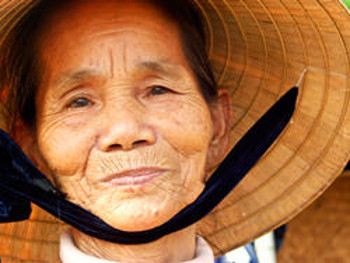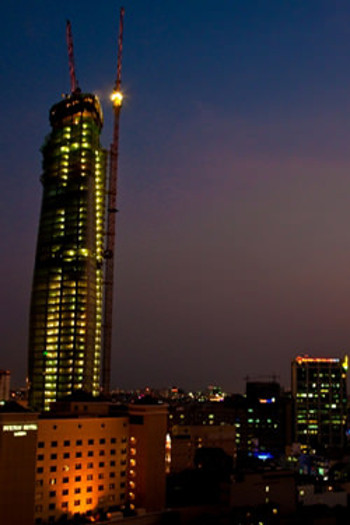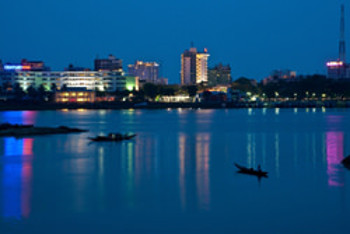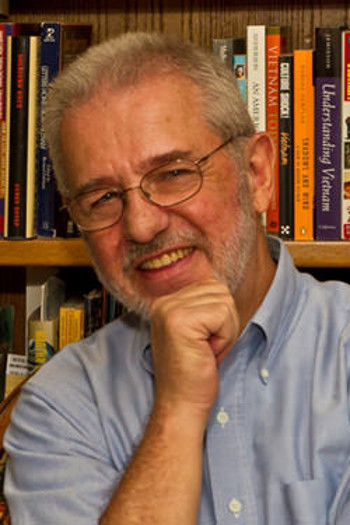by Doug Young
Vietnam: the very word stirs up bitter memories for Americans who are in their 60s or 70s. Most Americans of that age had friends or family who served there and over five million military men and women served in the war. The hugely unpopular conflict sparked anti-war rallies and divided families with bitter arguments. The fracture of American society was at its greatest since the American Civil War in the mid-1800s.
 What these old eyes have seen! America’s anguish was watched around the world. People in other lands with close ties to the United States got a daily dose of news from the war front and of street demonstrations inside America. It was a time of pain and anguish, creating scars that still exist today.
What these old eyes have seen! America’s anguish was watched around the world. People in other lands with close ties to the United States got a daily dose of news from the war front and of street demonstrations inside America. It was a time of pain and anguish, creating scars that still exist today.
Some Americans don’t like to carry scars - they want to be healed. Some veterans of that unfortunate war were curious to know what the country of Việt Nam is like today. With that in mind, Cindy and I first returned in 2002 to see for ourselves. Ten years after that first trip, we are preparing to return for still another trip to what has become our second home - our adopted country of Việt Nam.
 The Bitexo Financial Towers rises 68 floors above modern day Hồ Chí Minh CityI am a little different than the typical Vietnam veteran - I am married to a Vietnam veteran. I was an infantry officer who served two combat tours of duty and Cindy was an Army nurse. We met there in 1969 and were married two years later. In 2002, freed from the needs of raising a family and the pursuit of careers, we made our first trip back to today’s Việt Nam.
The Bitexo Financial Towers rises 68 floors above modern day Hồ Chí Minh CityI am a little different than the typical Vietnam veteran - I am married to a Vietnam veteran. I was an infantry officer who served two combat tours of duty and Cindy was an Army nurse. We met there in 1969 and were married two years later. In 2002, freed from the needs of raising a family and the pursuit of careers, we made our first trip back to today’s Việt Nam.
And we were shocked to see that Việt Nam is a country, not a war. While the older generation of Americans still feels pain, the Vietnamese could care less. They are far too busy building the world’s second fastest growing economy and trying to provide for their children a better life than they had. Skyscrapers sparkle in the night time Saigon skyline - concrete block homes have replaced stick and mud huts seen during the war - and there is not an AK47 rifle in sight. The country moves on motorbikes, but they are being replaced by automobiles, many of which are manufactured within the country - both Ford and Mercedes-Benz have assembly plants there. Pizza Hut and Kentucky Fried Chicken franchises dot the cities and everyone is either talking or texting on their smart phone. Supposedly Communist Việt Nam is filled with unbridled capitalism and bright new church buildings are very common.
No war can be found in Việt Nam - in fact, any vestige of the American War (as it is called) is either in a museum or a tourist trap. And there are lots of tourists, mostly from Europe as the folks come to Việt Nam to escape winter chill and enjoy tropical beaches and luxury hotels.
 The Perfume River bisects the central Việt Nam city of Huế This unexpected Việt Nam intrigued us so much, we decided to do more than visit - we decided to live there. For one and a half years in 2005-06, we spent three semesters teaching English at the University of Huế, and in so doing, became just a little Vietnamese. During that time, chopsticks became our preferred eating tool and the motorbike our daily transportation.
The Perfume River bisects the central Việt Nam city of Huế This unexpected Việt Nam intrigued us so much, we decided to do more than visit - we decided to live there. For one and a half years in 2005-06, we spent three semesters teaching English at the University of Huế, and in so doing, became just a little Vietnamese. During that time, chopsticks became our preferred eating tool and the motorbike our daily transportation.
But the best part of the experience was our students. They were smart kids who lived in a culture that values education very highly, and a joy to teach. There were no discipline problems in our classrooms - only noisy students eager to learn more. Our apartment became a hangout for many of them - a place to borrow English language books and practice their English. The Vietnamese education system is still not very good, so we delighted in having these kids in our lives.
In part two next week -Doug and Cindy Young, both veterans of the Vietnam War, returned to that country in 2005, to the city of Huế, where they taught English at the University for a year and half.
In the meantime, readers who wish to contact the author can find him at This email address is being protected from spambots. You need JavaScript enabled to view it." mce_' + path + '\'' + prefix + ':' + addy2479 + '\'>'+addy_text2479+'<\/a>';
//-->
or on Facebook at http://www.facebook.com/doug.young.180. “Same River, Different Water: A Veteran’s Journey from Vietnam to Việt Nam” is available online at various booksellers such as Amazon or Barnes & Noble, or by ordering through your local bookstore.
BIO:
 Doug Young Doug Young met his wife, former Army nurse Cindy Mason, in Vietnam in 1969. After a successful career in law enforcement and higher education, Doug and Cindy retired early and moved to the city of Hue, Vietnam, in 2005, where they taught English at the University of Hue for a year and half. They enjoy their two cats, four grandchildren and one great grandchild as they also enjoy former Vietnamese students whom they have brought to the US for further study. Cindy and Doug live in south Texas.
Doug Young Doug Young met his wife, former Army nurse Cindy Mason, in Vietnam in 1969. After a successful career in law enforcement and higher education, Doug and Cindy retired early and moved to the city of Hue, Vietnam, in 2005, where they taught English at the University of Hue for a year and half. They enjoy their two cats, four grandchildren and one great grandchild as they also enjoy former Vietnamese students whom they have brought to the US for further study. Cindy and Doug live in south Texas.